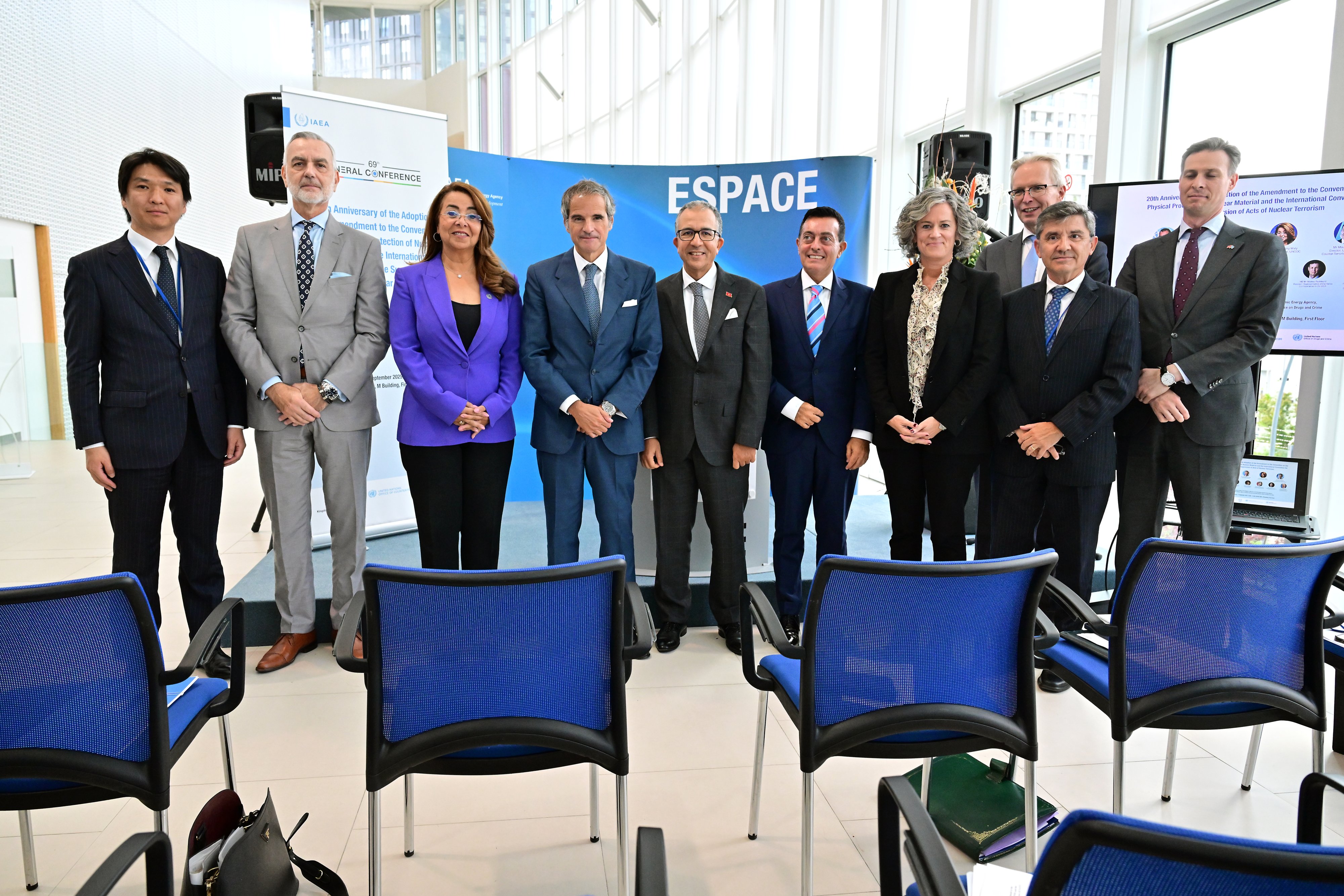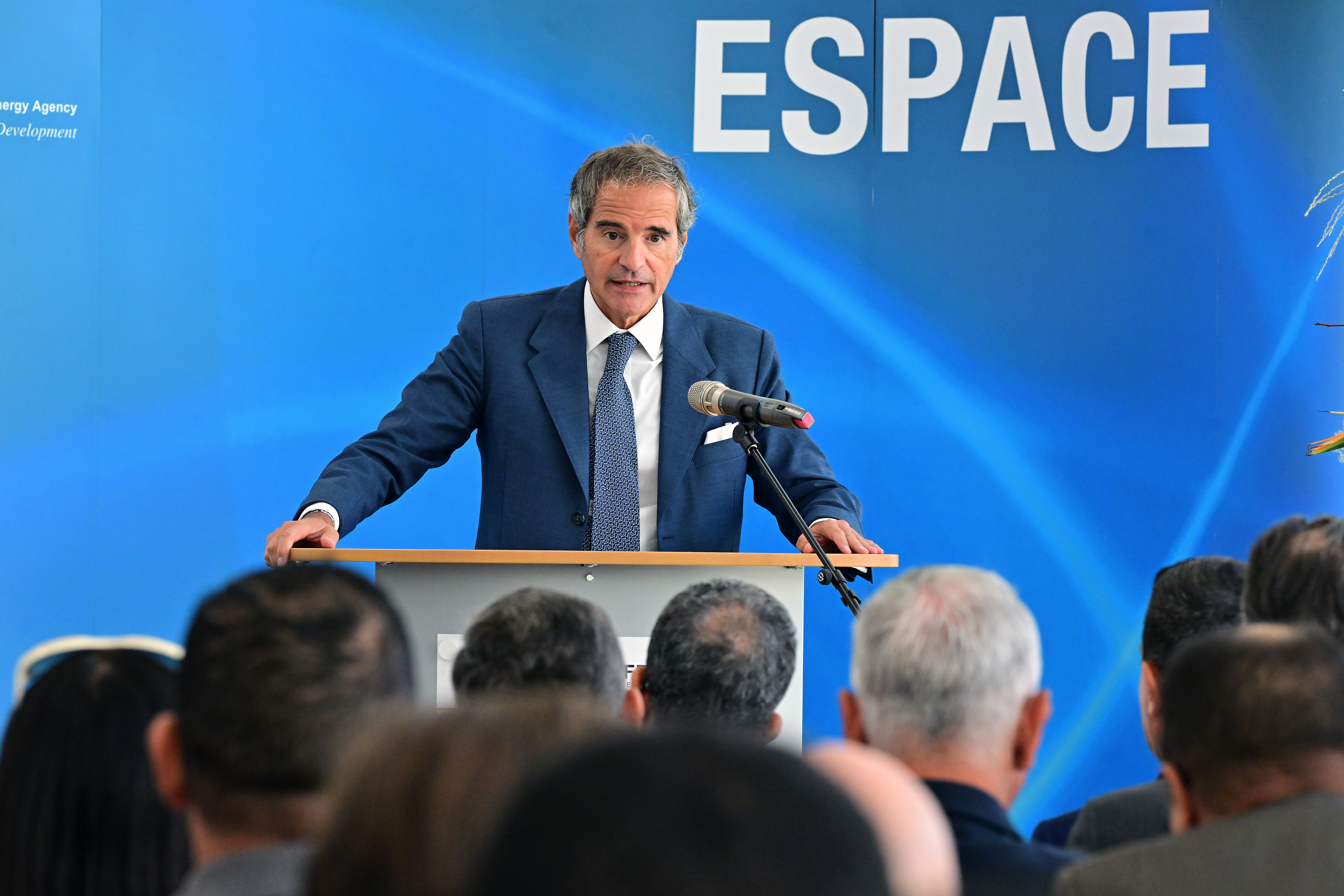During the IAEA’s recent General Conference, countries came together to celebrate 20 years of global cooperation to strengthen nuclear security. The side event marked the anniversary of the adoption of two landmark legal instruments — the Amendment to the Convention on the Physical Protection of Nuclear Material and the International Convention for the Suppression of Acts of Nuclear Terrorism.
Jointly organized by the IAEA, the Kingdom of Morocco, the United Nations Office of Counter-Terrorism and the United Nations Office on Drugs and Crime (UNODC), the event reflected on progress made over the past two decades and reaffirmed international commitment to preventing nuclear terrorism and other criminal acts involving nuclear and other radioactive material.
Other speakers were Mauro Miedico, Director of the United Nations Counter-Terrorism Centre, UNOCT; HE Mr Gustavo Rodolfo Zlauvinen, Resident Representative of the Argentine Republic to the IAEA; HE Ms Alison Grant, Resident Representative of Canada to the IAEA; HE Mr Tsengeg Mijiddorj, Resident Representative of Mongolia to the IAEA; HE Mr Juan Francisco Facetti, Resident Representative of the Republic of Paraguay to the IAEA; HE Mr Matteo Fachinotti, Resident Representative of the Swiss Confederation to the IAEA; and HE Mr Carl Hallerg?rd, Permanent Representative of the Delegation of the European Union to the IAEA.



